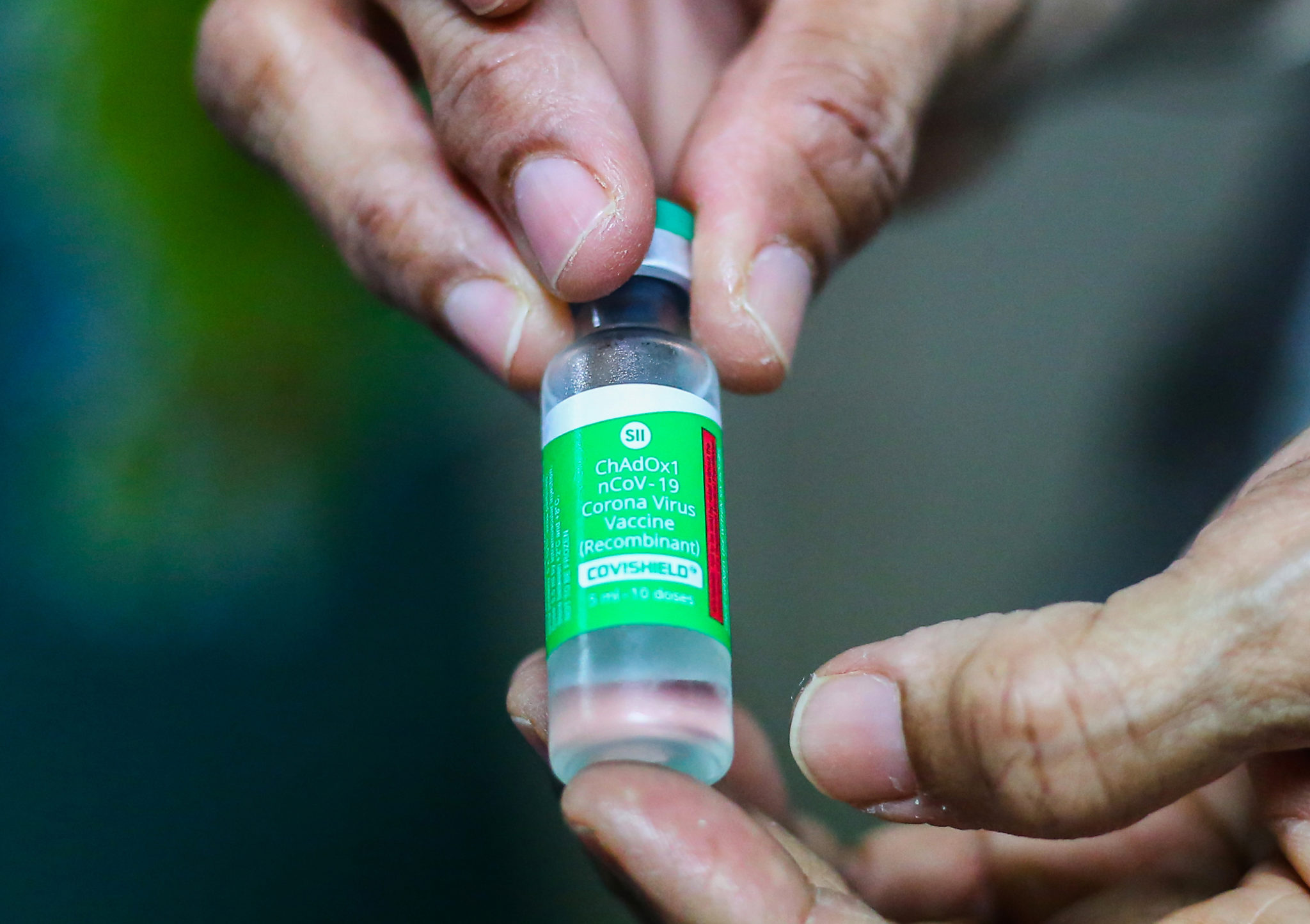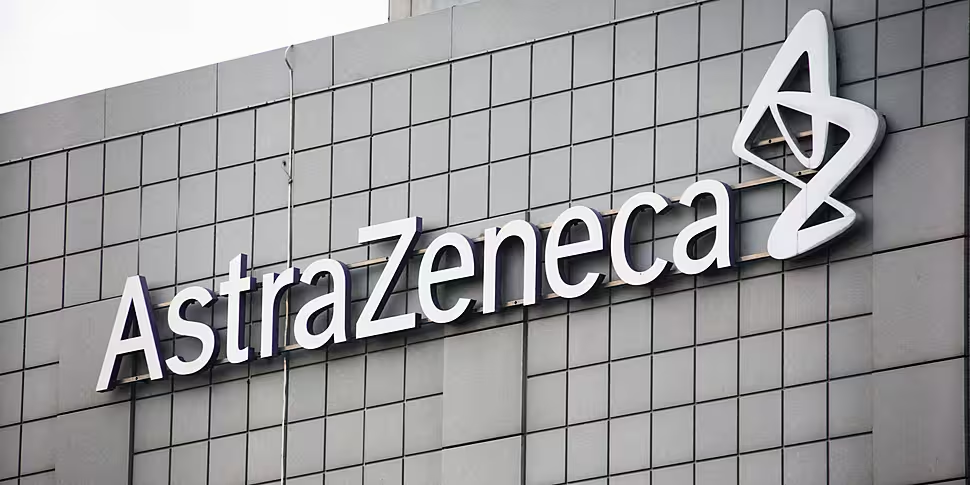The European Medicines Agency (EMA) has recommended AstraZeneca's COVID-19 vaccine for authorisation in the EU.
In its recommendation, it says it should be used in people from 18 years of age.
This is the third COVID-19 vaccine that the EMA has recommended for authorisation, after Pfizer-BioNTech and Moderna.
The EMA's human medicines committee (CHMP) says it has "thoroughly assessed" data on the quality, safety and efficacy of the vaccine.
It says it has "recommended by consensus" a formal conditional marketing authorisation be granted by the European Commission.
"This will assure EU citizens that the vaccine meets EU standards and puts in place the safeguards, controls and obligations to underpin EU-wide vaccination campaigns," the EMA adds.
The European Commission will now fast-track a decision-making process for the drug to be rolled out across the bloc.
Tánaiste Leo Varadkar tweeted: "This is good news. It means we now have another vaccine in the arsenal. AstraZeneca has met the EMA’s strict criteria."
He said the Government will also begin vaccinating those aged over-85 "in the next few weeks".
📢 EMA has just recommended granting a conditional marketing authorisation for the #COVID19vaccine AstraZeneca to prevent #COVID19 in people from 18 years of age. 👉Read our press release: https://t.co/YDbOvZEMUN pic.twitter.com/Sbj6TdlGTW
— EU Medicines Agency (@EMA_News) January 29, 2021
The AstraZeneca vaccine is given as two injections in the arm, the second between four to 12 weeks after the first.
The most common side effects were usually mild or moderate, and got better within a few days after vaccination.
These included pain and tenderness at the injection site, headache, tiredness, muscle pain, general feeling of being unwell, chills, fever, joint pain and nausea.
59.5% reduction in COVID-19 cases
Irish woman Emer Cooke, executive director of the EMA, says: "With this third positive opinion, we have further expanded the arsenal of vaccines available to EU and EEA member states to combat the pandemic and protect their citizens.
"As in previous cases, the CHMP has rigorously evaluated this vaccine, and the scientific basis of our work underpins our firm commitment to safeguard the health of EU citizens."
Combined results from four clinical trials in the UK, Brazil and South Africa showed the vaccine was safe and effective at preventing COVID-19 in people from 18 years of age.
These studies involved around 24,000 people, where half received the vaccine and half were given a control injection - either a dummy injection or another non-COVID vaccine.
These showed a 59.5% reduction in the number of symptomatic COVID-19 cases in people given the vaccine (64 of 5,258 got COVID-19 with symptoms), compared with people given control injections (154 of 5,210 got COVID-19 with symptoms).
This means the vaccine demonstrated around a 60% efficacy in the clinical trials.
Most of the participants in these studies were between 18 and 55-years-old.
But the EMA notes that there are not yet enough results in older participants (over 55) to provide a figure for how well the vaccine will work in this group.
However, it adds that "protection is expected, given that an immune response is seen in this age group and based on experience with other vaccines".
"As there is reliable information on safety in this population, EMA’s scientific experts considered that the vaccine can be used in older adults", it says.
 A member of staff poses with a vial of Oxford-AstraZeneca COVID-19 vaccine at The National Hospital in Colombo, Sri Lanka. Picture by: Pradeep Dambarage/Zuma Press/PA Images
A member of staff poses with a vial of Oxford-AstraZeneca COVID-19 vaccine at The National Hospital in Colombo, Sri Lanka. Picture by: Pradeep Dambarage/Zuma Press/PA ImagesIt comes amid an ongoing row between the pharmaceutical company and the EU over doses.
The Commissioner for Health, Stella Kyriakides, said there was a 'constructive tone' in a meeting with AstraZeneca CEO Pascal Soriot on Wednesday night.
She said the EU remained "united and firm" and that contractual obligations "must be met, vaccines must be delivered to EU citizens".
"We regret the continued lack of clarity on the delivery schedule and request a clear plan from AstraZeneca for the fast delivery of the quantity of vaccines that we reserved for Q1.
"We will work with the company to find solutions and deliver vaccines rapidly for EU citizens," she tweeted.
The reduction in supply means Ireland is expected to get around 300,000 doses - instead of an expected 600,000 - by the end of March.
While Health Service Executive (HSE) CEO Paul Reid earlier warned that the COVID-19 vaccine rollout is going to be a 'rocky road'.
He told Newstalk Breakfast the HSE can only offer 'uncertainty' at the moment due to the complications around vaccine supply.
"Where everyone is looking for predictability, certainty and clarity, all we can give at the moment is uncertainty", he said.
"This will get stronger and a bit clearer as more vaccines emerge.
"But we have to be frank and say we’re living with a bit of uncertainty for now."









